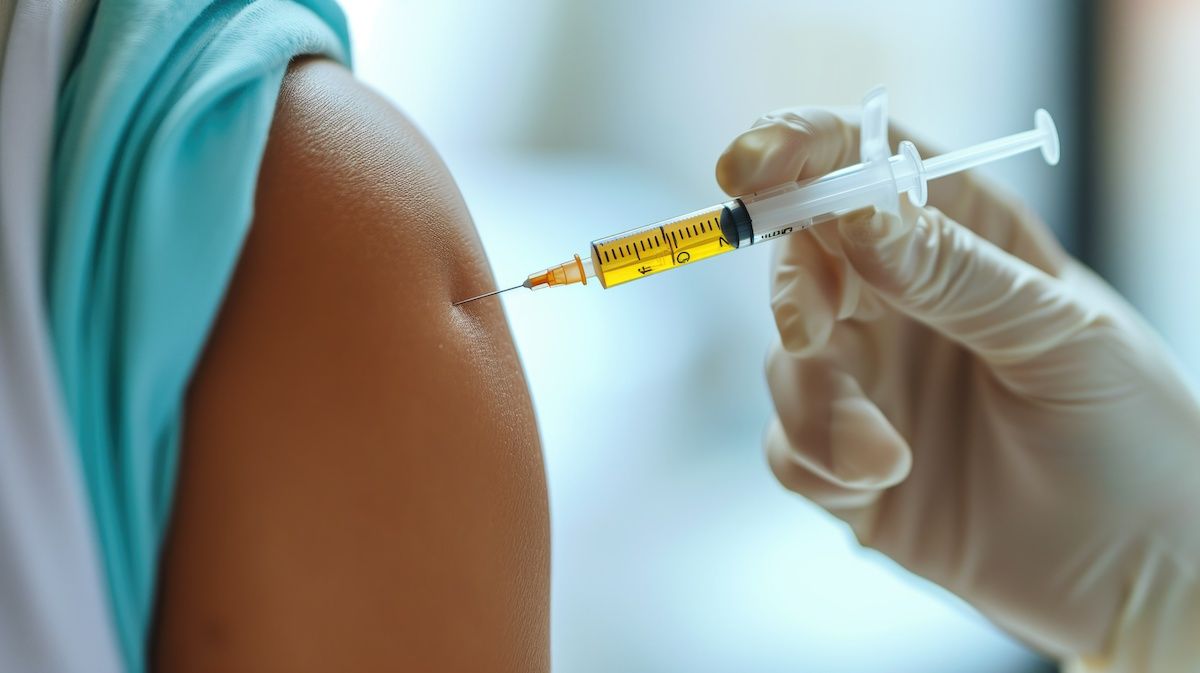- Bone Health
- Immunology
- Hematology
- Respiratory
- Dermatology
- Diabetes
- Gastroenterology
- Neurology
- Oncology
- Ophthalmology
- Rare Disease
- Rheumatology
Resolution of Injection Site Reactions After Switching to Adalimumab Biosimilar
A 15-year-old girl with ulcerative colitis who developed injection site reactions to the adalimumab reference product was successfully switched to the biosimilar LBAL without recurrence of symptoms, demonstrating the safety and effectiveness of switching for medical reasons, likely due to an allergic reaction to an excipient in the originator.
Image credit: EVGENIA - stock.adobe.com

Physicians and researchers from Saga University Hospital in Japan described a case of a 15-year-old girl with ulcerative colitis (UC) who switched from the adalimumab reference product to the biosimilar LBAL (LG Chem) after the eighth adalimumab dose when injection site reactions had begun to develop. The biosimilar was continued with no injection site symptoms and no recurrence of gastrointestinal symptoms for 6 months. The authors said that their case demonstrates the effectiveness and safety of switching from the reference adalimumab to LBAL for a medical reason.
Adalimumab is an anti-tumor necrosis factor (TNF) alpha biologic used for the treatment of inflammatory bowel disease (IBD), an umbrella term for Crohn disease and UC. LG Chem’s adalimumab biosimilar LBAL was approved by Japan’s Pharmaceuticals and Medical Devices Agency (PMDA) in 2021.
When pediatric UC is uncontrollable by 5-aminosalicylic acid (5-ASA) and azathioprine, chronically active, or corticosteroid-dependent, the TNF inhibitor infliximab is recommended. In those patients who relapse or are intolerant to infliximab, adalimumab is often used. The authors noted that after the introduction of a citrate-free adalimumab formulation in 2016, it has been used more frequently in children with IBD since citrate can cause injection-site pain.
The safety of switching from anti-TNF originators to biosimilars for nonmedical reasons has been demonstrated in many studies, the authors said; however, very few studies have reported on switching to a biosimilar for medical reasons.
A 15-year-old girl presented with symptoms characteristic of UC and was diagnosed based on colonoscopy findings. She was treated at first with 5-ASA and prednisolone. Although her symptoms improved, they soon recurred after the dose of prednisolone was reduced. She was diagnosed with steroid-dependent refractory UC and was treated with vedolizumab. Fifteen months later, gastrointestinal symptoms returned. After bacterial and viral infections were ruled out, colonoscopy confirmed relapsed UC. Prednisolone was resumed, and symptoms improved until the dose was reduced. The adalimumab reference product was introduced in place of vedolizumab, as the authors determined that the therapeutic effect of vedolizumab had “weakened.”
The adalimumab originator was injected subcutaneously on the anterior surface of the thigh, alternating left and right for each dose. After six weeks, the patient’s gastrointestinal symptoms had completely resolved; however, immediately after the eighth dose, redness, swelling, and pruritus were observed at the injection site and resolved the next day. At the ninth dose, the same symptoms, however more severe, were observed on the opposite thigh and took five days to completely resolve.
The authors judged the symptoms as an allergic reaction and switched the patient to the adalimumab biosimilar LBAL. She was treated with LBAL without any injection site symptoms for six months, and the UC “remained stable.”
The authors noted that injection site reactions are common in patients receiving subcutaneously administered anti-TNF agents, with about 20% of patients on adalimumab experiencing injection site reactions. In this specific case, the authors said since D-mannitol is an excipient in thereference adalimumab but not in LBAL, the injection site reactions were likely due to an allergic reaction to D-mannitol. They concluded that switching to a biosimilar for medical reasons “may be an option under careful observation, considering that the originator and the biosimilar are not exactly the same.”
Reference
Hirakawa Y, Kakiuchi T, Yoshiura M, Kikkawa N. Improved injection site reactions after switching from adalimumab reference to adalimumab biosimilar LBAL for ulcerative colitis: a case report. Medicine (Baltimore). 2024;103(44):e40400. doi:10.1097/MD.0000000000040400
Newsletter
Where clinical, regulatory, and economic perspectives converge—sign up for Center for Biosimilars® emails to get expert insights on emerging treatment paradigms, biosimilar policy, and real-world outcomes that shape patient care.
